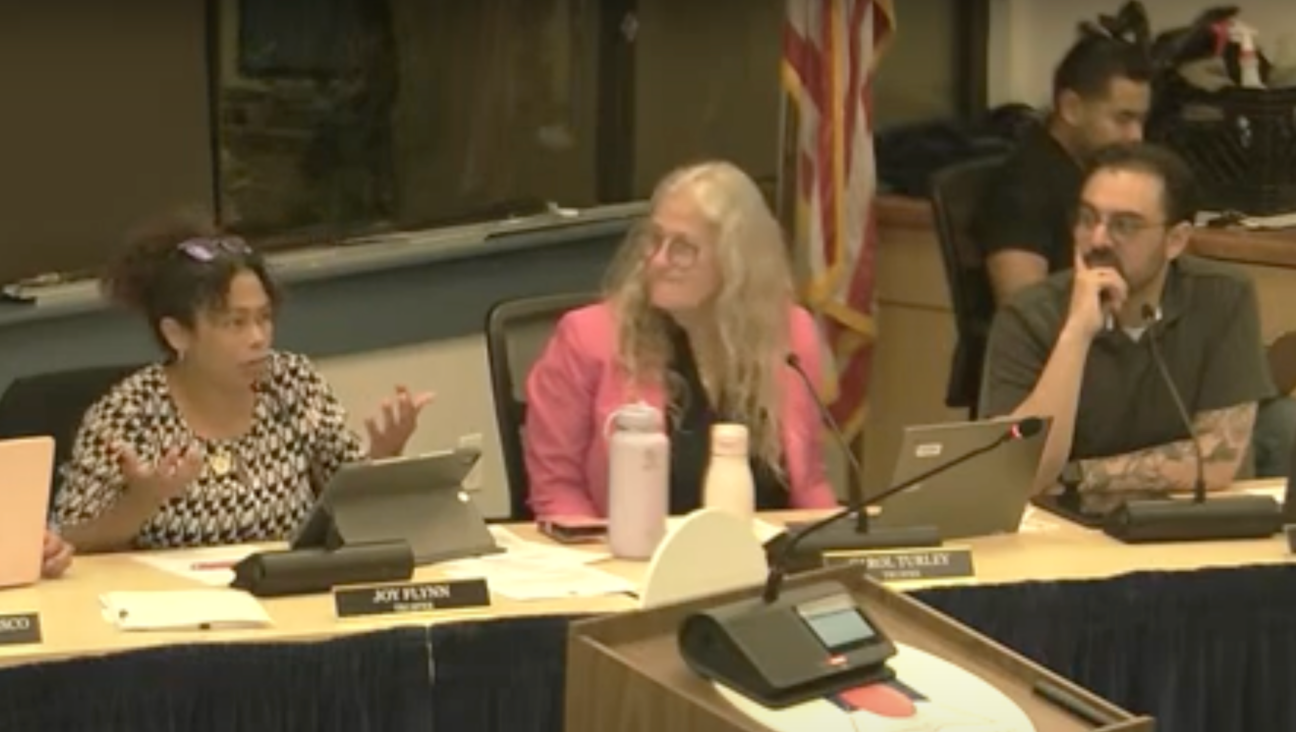Making Reform Relevant
The Reform movement has launched a series of public dialogues about its future, and the timing could not be more fitting. While Reform remains the largest of America’s four main streams of Judaism, overall membership in Reform synagogues has declined. The movement’s central institution, the Union for Reform Judaism, is still navigating the aftermath of major budget cuts and staff reductions. The search for a successor to the movement’s leader and spokesman, Rabbi Eric Yoffie, has begun. The time is right for a hard-headed exploration of what values Reform Judaism’s leaders will highlight as the movement enters a new era.
What we urgently need now is to articulate a broad vision about what Reform Judaism means. What word or phrase will come to mind when people think about Reform Judaism? What motivating passion will drive the leadership and thinkers of the movement?
For much of the movement’s early history, the key word was “progress.” As Jews left the ghettos and became more integrated into American society, Reform was a way of adapting and changing. This trend began to change, slowly but significantly, after World War II. For a significant portion of that generation, and especially their children, Reform Judaism was about “social action” and “liberalism.” In the 1980s and early 1990s, with the significant rise in intermarriage, the focus was “outreach.” In the late ’90s through today, it has been “spirituality” and “transformation.”
What will it be tomorrow? My hope is that when we think of Reform Judaism, we will think of “relevance.”
Jews of every generation are looking for ways that Judaism speaks to the pressing concerns of daily life. We search, for example, for ways to become better parents, and it is no accident that Wendy Mogel’s “The Blessing of a Skinned Knee: Using Jewish Teachings To Raise Self-Reliant Children” is an extraordinarily popular Jewish book. We search for ways to make a difference in our communities, and it is no wonder that numerous studies suggest many Jews identify their Judaism with acts of social justice. We watch what we eat, and it is no coincidence that issues of food consumption and sustainability have drawn attention from rapidly growing Jewish environmental groups like Hazon.
Focusing on relevance puts the needs of people ahead of the assumptions of organizations. It begins where Jews are, rather than where others think they should be. It does not, however, end there.
A Judaism of relevance does not simply accept and affirm that the vast majority of Jews do not attend Shabbat worship, even on a monthly basis. It does not say that since we spend time at Starbucks, concerts and the health club, the way to make a synagogue relevant is to have good coffee, rock-style musical services and weekly yoga classes. Rather, it seeks to focus on the areas where Judaism can add meaning and purpose to our lives. It seeks to address the desires we have to feel part of something larger than ourselves and to make our lives matter.
In what way would a focus on relevance change current Reform practices? Rather than craft boiler-plate statements on Zionism and the importance of visiting Israel, leaders of our movement would seek to articulate a compelling reason as to why Israel matters to Reform Jews and what obligations — given that we live in America — we have to it. Rather than just provide new curricula for religious schools, we would first try to better understand the ways Reform Jewish families spend their time and act on their values, and seek to make Jewish practices and activities a more meaningful part of their daily lives.
We would also address real theological questions that American Jews confront. Anecdotal evidence from my own experience working as a rabbi suggests that a large number of Reform Jews know very little about Jewish understandings of God. They see their Jewish identity in cultural terms, and if asked about God, they would probably describe either the “old man in the sky” they do not believe in, or something close to “the power that makes for human salvation” envisioned by Mordecai Kaplan. Neither our prayer books nor our curricula address God in a meaningful, relevant way. We need powerful statements about a God that address the doubts we have, connect to the lives we live, and enrich our relationships and activities in a sustained way.
Some may decry a Reform Judaism organized around relevance as dumbing down Judaism and creating a self-centered vision of Jewish life. What happened to commanded-ness? What about the parts of Jewish tradition that are difficult, time-consuming and countercultural?
A focus on relevance does not mean we do not engage in difficult parts of Jewish life. Indeed, what is hard is often what is most worthwhile. Relevance insists, however, that we ensure that what happens in our synagogues, schools and camps makes a difference in the way we live. It seeks to break down the barriers that often exist between rabbis and laypeople, between the theology of the prayer book and our own beliefs, and between what we learn in religious school and what we do at home.
The word relevance is defined as “having application.” Reform Jews need a vision of Jewish life that applies to the practices and values of 21st-century American Jews.
Rabbi Evan Moffic is the rabbi of Congregation Solel in Highland Park, Ill.
The Forward is free to read, but it isn’t free to produce

I hope you appreciated this article. Before you go, I’d like to ask you to please support the Forward.
Now more than ever, American Jews need independent news they can trust, with reporting driven by truth, not ideology. We serve you, not any ideological agenda.
At a time when other newsrooms are closing or cutting back, the Forward has removed its paywall and invested additional resources to report on the ground from Israel and around the U.S. on the impact of the war, rising antisemitism and polarized discourse.
This is a great time to support independent Jewish journalism you rely on. Make a gift today!
— Rachel Fishman Feddersen, Publisher and CEO
Support our mission to tell the Jewish story fully and fairly.
Most Popular
- 1

Opinion The dangerous Nazi legend behind Trump’s ruthless grab for power
- 2

News Who is Alan Garber, the Jewish Harvard president who stood up to Trump over antisemitism?
- 3

News Student protesters being deported are not ‘martyrs and heroes,’ says former antisemitism envoy
- 4

Opinion What Jewish university presidents say: Trump is exploiting campus antisemitism, not fighting it
In Case You Missed It
-

Opinion How Trump’s attacks on the university target what has made America great for Jews
-

Culture This Jewish New Yorker survived the Holocaust and the Hungarian Revolution, and is still helping others today
-

Fast Forward Trump says he and Netanyahu are ‘on the same side of every issue’ following talks on Iran, tariffs
-

Fast Forward California school board members accused of antisemitism during contentious meeting
-
Shop the Forward Store
100% of profits support our journalism
Republish This Story
Please read before republishing
We’re happy to make this story available to republish for free, unless it originated with JTA, Haaretz or another publication (as indicated on the article) and as long as you follow our guidelines.
You must comply with the following:
- Credit the Forward
- Retain our pixel
- Preserve our canonical link in Google search
- Add a noindex tag in Google search
See our full guidelines for more information, and this guide for detail about canonical URLs.
To republish, copy the HTML by clicking on the yellow button to the right; it includes our tracking pixel, all paragraph styles and hyperlinks, the author byline and credit to the Forward. It does not include images; to avoid copyright violations, you must add them manually, following our guidelines. Please email us at [email protected], subject line “republish,” with any questions or to let us know what stories you’re picking up.













